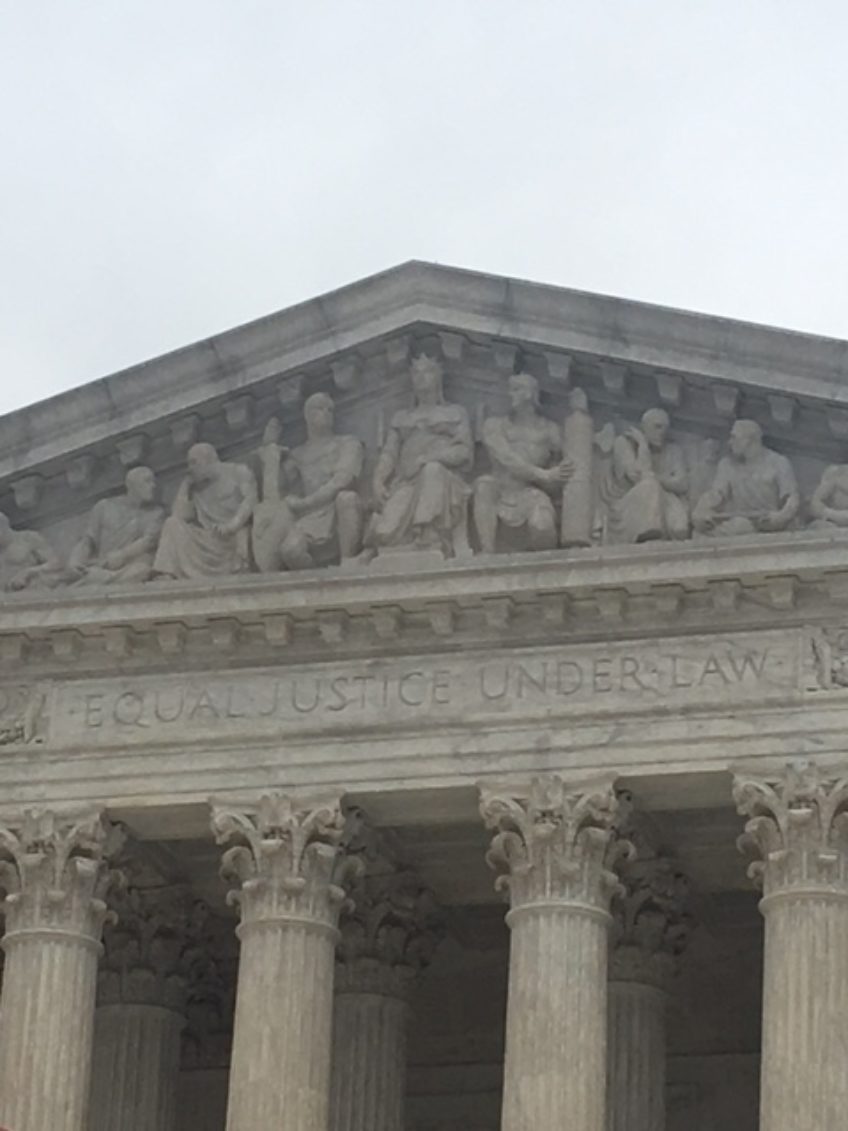Supreme Court Hearing Oral Arguments Regarding Public Sector Union Dues
The Supreme Court is hearing oral arguments in the case of Janus v. AFSCME, a case very similar to one that has already been heard by eight of the nine Supreme Court Justices. Mark Janus is a child support specialist for the State of Illinois. As a government union worker, he is challenging the American Federation of State, County and Municipal Employees (AFSCME) union over the requirement that he pay union dues or risk being fired.
A similar case was heard in January of 2016 but due to the death Justice Scali, the court returned a 4-4 tied vote leaving the lower court’s ruling in place that favored forced unionism. Assuming the members vote the same way again, there is the expectation that President Trump’s Supreme Court nomination of Neil Gorsuch should tip the scales in favor of Janus. This would reverse a decision made by the court in 1977 in the case of Abood v. Detroit Board of Education. The thinking at the time was that although Abood was not a union member, he was still compelled to pay an “agency” or “fair share” fee to cover the costs of union contract negotiations to prevent “free riders.”
The point in question is whether or not Janus’ First Amendment rights have been violated by being forced to pay dues to an organization with positions he does not agree. While public employee fair share fees are not to be spent on electoral politics, Janus contends that the negotiations that take place between government and its own employees, such as collective bargaining, are inherently political. The AFSCME argues that by following the law, they are required to work for an entire bargaining unit including non-members. If fair share fees were to become optional or not forced, many folks would become free riders and that would financially destroy the union.
Politically, this could be a major blow to the Democratic Party as money from government unions accounts for six percent of the campaign contributions to Democratic candidates running for federal office, which does not include in-kind contributions for grassroots activities. Looking at a parallel to the private sector, union membership in right-to-work states is one third of that in union states. While union membership has been in decline since the 1950s, it is believed that a verdict in favor of Janus will decrease public-sector union membership (because employees will no longer be forced to join). This would, in turn, reduce political spending and activities by the four largest public sector unions: the AFSCME, the American Federation of Teachers, the National Education Association and the Service Employees International Union (SEIU).
Fiscally, a Janus win would alleviate some pressure from states where retirement benefits have been used as bargaining chips by both political parties. Instead of pay raises, politicians have offered better post-retirement benefits; however, the level of such liabilities was virtually unknown until the Governmental Accounting Standards Board updated their rules in 2008. States with stronger union membership have been shown to have higher liabilities and tend to be run by Democrats.
While it will be sometime this fall before the decision is made, there is no doubt a lot is riding on this case. Some see this as an opportunity to expand worker freedom through choice, especially teachers; others see it as an opportunity to have an open and honest conversation about the future of public sector pensions. A decision in favor of worker freedom may open the door to helping states avoid a financial crisis in waiting.

